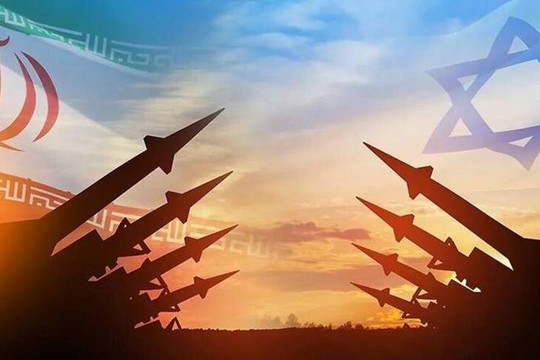Iran has no intention of ending its retaliatory military strikes, the Islamic Republic's Foreign Ministry spokesman said, quoted by Iran International. "We have started a brutal war and [we] will continue it with force," he stated. Meanwhile, a spokesman for the country’s Health Ministry, Hossein Kermanpour, said that a total of 224 people have been killed since the Israeli attacks began on Friday, with 1,277 hospitalized. According to him, more than 90 percent of these are peaceful civilians.
Twenty-four civilians have died since the start of Iranian attacks on Israel, said Dmitry Gendelman, an adviser to the Israeli Prime Minister's office. Another 592 people were injured, of whom 10 are in serious condition, 36 are in moderate condition, and another 546 people suffered minor injuries. According to the Iranian news agency Tasnim, Tehran’s missile attack on Israel in the early hours of June 16 was more destructive due to the active use of Fattah hypersonic missiles, which the Iranians claim have the maximum speed of Mach 15.
The agency quoted the Aerospace Forces of the Islamic Revolutionary Guard Corps (IRGC, a formation within the Iranian Armed Forces) as stating that the IRGC had actively used hypersonic missiles during the June 16 retaliatory strikes on Israel, which included Tel Aviv and Haifa.
The new wave of Iranian strikes is seen as the "most powerful" since the start of the Iranian operation, with missiles targeting an oil refinery and a power plant in Haifa, and causing "significant damage" also to Tel Aviv and Bnei Brak, the agency reports.
"During today's operation, there have been several images taken of hypersonic missiles hitting targets in Tel Aviv and Haifa, which shows that these missiles easily penetrated Israel's missile defense systems and hit their targets," the report says.
On Sunday, June 15, CNN reported, citing US and Israeli officials, that Israel's operation against Iran would take "weeks, not days." That same day, Iran's Foreign Minister said the country was ready to end its strikes on Israel if the latter stopped attacking Iran.
Shortly afterwards, Bloomberg reported that although Israelis, who have been critical of Prime Minister Benjamin Netanyahu's policies, have largely accepted his justification of the decision to launch an operation against Iran, they fear that the fighting may drag on for a long time.
Meanwhile, in an address to the country’s parliament, Iran’s President Masoud Pezeshkian said that Tehran does not seek nuclear weapons, but has the right to peaceful nuclear energy, The National reported.
"They [Israel and Western countries] say that Iran should not obtain nuclear weapons, while we have no intention of obtaining these weapons at all," Pezeshkian said. "We have the right to benefit from nuclear energy and research that benefits this society and no one has the right to take this right away from us," he added.
Meanwhile, the Iranian Foreign Ministry said that Tehran sticks to its obligations under the Treaty on the Non-Proliferation of Nuclear Weapons (NPT) and believes that there is no place for nuclear weapons in the Middle East.
read more in our Telegram-channel https://t.me/The_International_Affairs

 15:01 16.06.2025 •
15:01 16.06.2025 •























